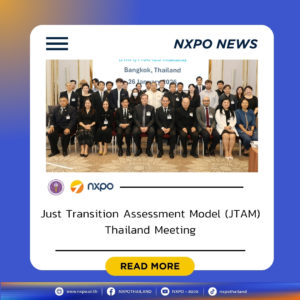Marking its sixth anniversary on 2 May 2025, NXPO President Dr. Surachai Sathitkunarat unveiled the agency’s strategic direction for the years ahead, reaffirming its leadership in formulating and implementing national policies in higher education, science, research, and innovation. This milestone builds on a solid foundation established by its predecessor — the National Science Technology and Innovation Policy Office (STI Office) — extending its total operational legacy to 16 years.

Reflecting on NXPO’s origins, Dr. Surachai recounted the agency’s transformation from the STI Office, which was originally positioned as an academically driven policy body. Under the leadership of its first Secretary-General, Dr. Pichet Durongkaveroj, key national initiatives such as Talent Mobility and Food Innopolis were launched. His successor, Dr. Kitipong Promwong, drove system reforms in science, research, and innovation and inaugurated the NXPO era as its first President, cultivating strong partnerships with the private sector.
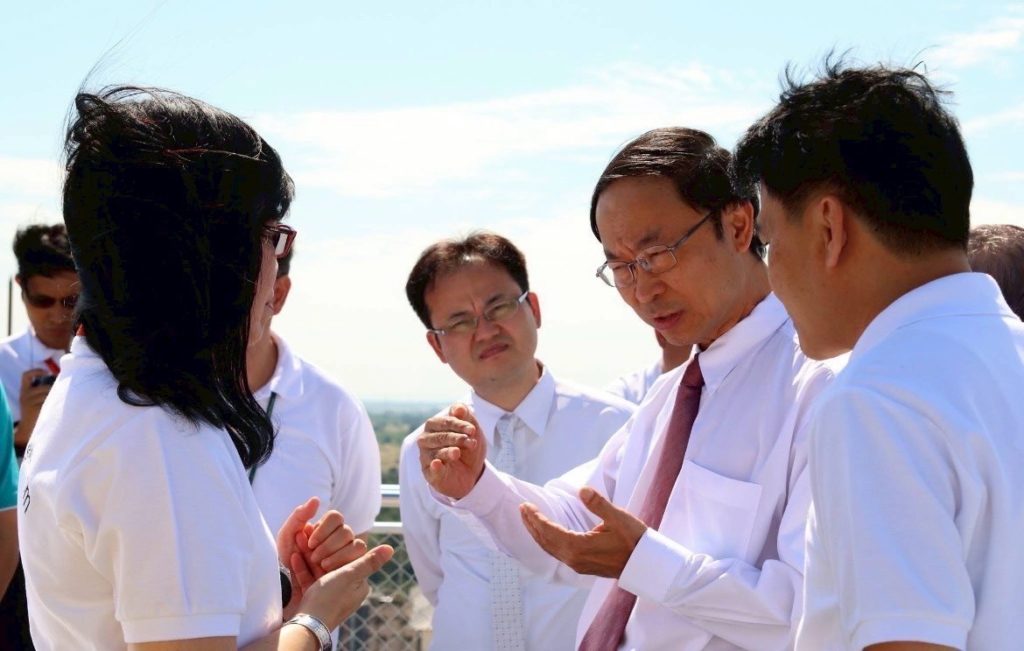
Under Dr. Surachai’s leadership, NXPO is committed to anticipating rapid global shifts and preparing the country for emerging challenges. Central to this effort is the use of foresight tools, which will function as an early-warning system to detect emerging trends and signals, enabling the NXPO team to develop policy directions within three months to ensure timely and targeted responses. The agency’s strategic priorities will focus on addressing Thailand’s most pressing and nationally significant issues.
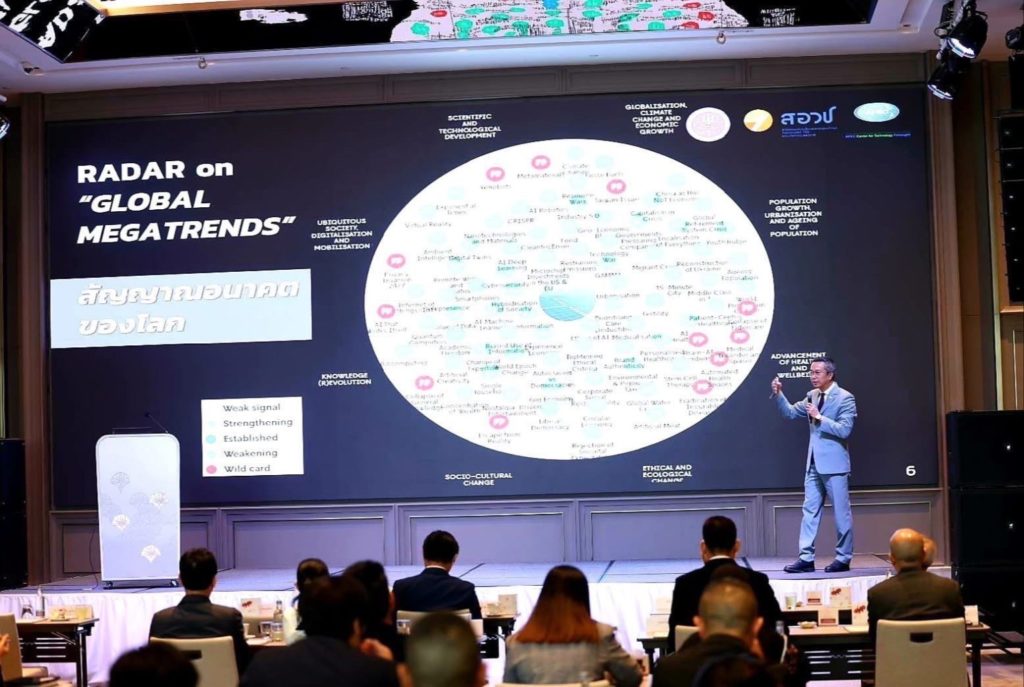
Among these is the escalating climate crisis, which not only poses risks to exports through new trade barriers but also threatens Thailand’s industrial and agricultural sectors. Dr. Surachai emphasized the need to accelerate the deployment of low-emission technologies to replace conventional systems, alongside the development of early-warning tools and preventive strategies to mitigate risks from floods, droughts, and coastal erosion — increasingly threatening urban areas such as Bangkok.

The government has also entrusted NXPO with leading the upcoming reform of the national science, research, and innovation system after five years under the current framework. Areas identified for enhancement include sharpening policy focus, ensuring research aligns with national needs, streamlining research funding administration, and strengthening monitoring and evaluation systems to support evidence-based policymaking. Dr. Surachai underscored that NXPO’s renewed mandate will prioritize high-potential sectors where Thailand can compete globally — including agriculture, tourism, food, healthcare, and niche industries. NXPO is set to spearhead the development of the national higher education, science, research, and innovation policy and strategy framework for 2028–2031 in partnership with key agencies such as Thailand Science Research Innovation (TSRI) and the Office of the Permanent Secretary for Higher Education, Science, Research, and Innovation.
Four-Year Strategy to Drive Economic Transformation
Dr. Surachai outlined NXPO’s four-year strategic plan (2025–2028), designed to fully implement its mandate of strengthening Thailand’s higher education, science, research, and innovation systems to drive sustainable economic development and lift the country out of the middle-income trap.
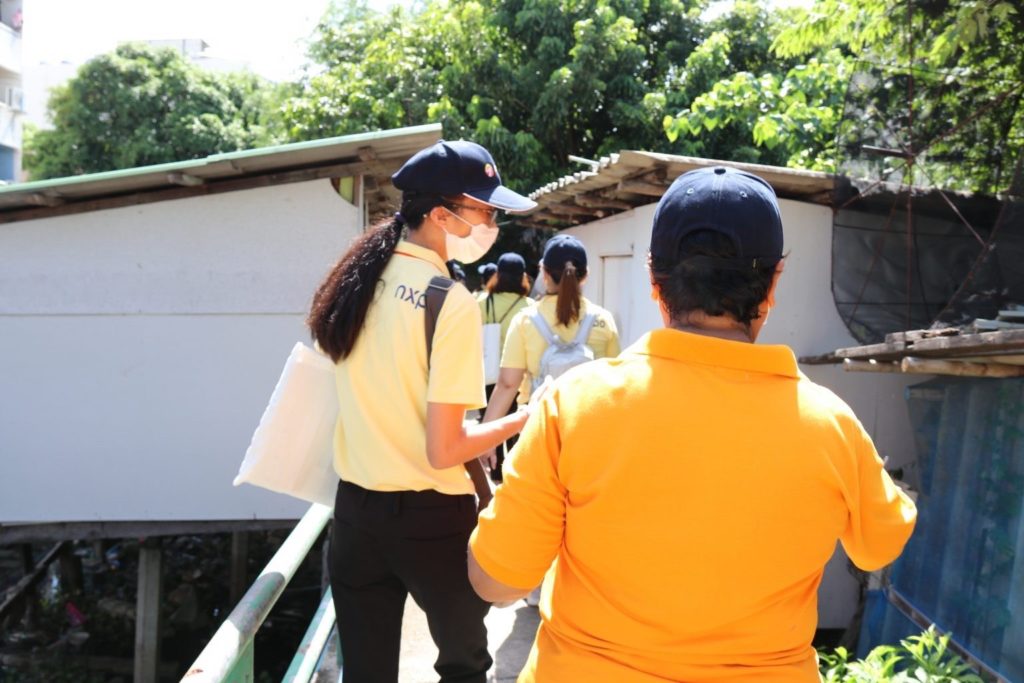
“Over the next four years, NXPO will actively carry out its roles as defined in the Higher Education, Science, Research and Innovation Policy Council Act B.E. 2562 and the Science, Research and Innovation Promotion Act B.E. 2562 — encompassing strategic planning, data integration, performance monitoring, and annual budget management, while fostering collaboration with domestic and international partners,” Dr. Surachai stated.

NXPO will place strong emphasis on policy research to inform the development of strategic plans for key sectors including electric vehicles (EV), semiconductors, future food, and medical tourism — with the overarching aim of strengthening Thailand’s global competitiveness. The new strategic plan will also tackle urgent 21st-century challenges, such as modernizing the national research and innovation system, advancing lifelong learning, transforming universities, and harnessing emerging technologies like artificial intelligence (AI), green hydrogen, synthetic biology (SynBio), and quantum technologies.
Advancing Humanities, Arts, and Social Sciences (HASS)
Another major focus will be to develop a strategic plan for Humanities, Arts, and Social Sciences (HASS), integrating HASS into national policy design and development. This includes supporting the drive towards carbon neutrality and establishing a technology transfer mechanism. Serving as Thailand’s National Designated Entity (NDE) for the UNFCCC’s technology mechanism, NXPO aims to facilitate the transfer of climate technology and foster international partnerships.
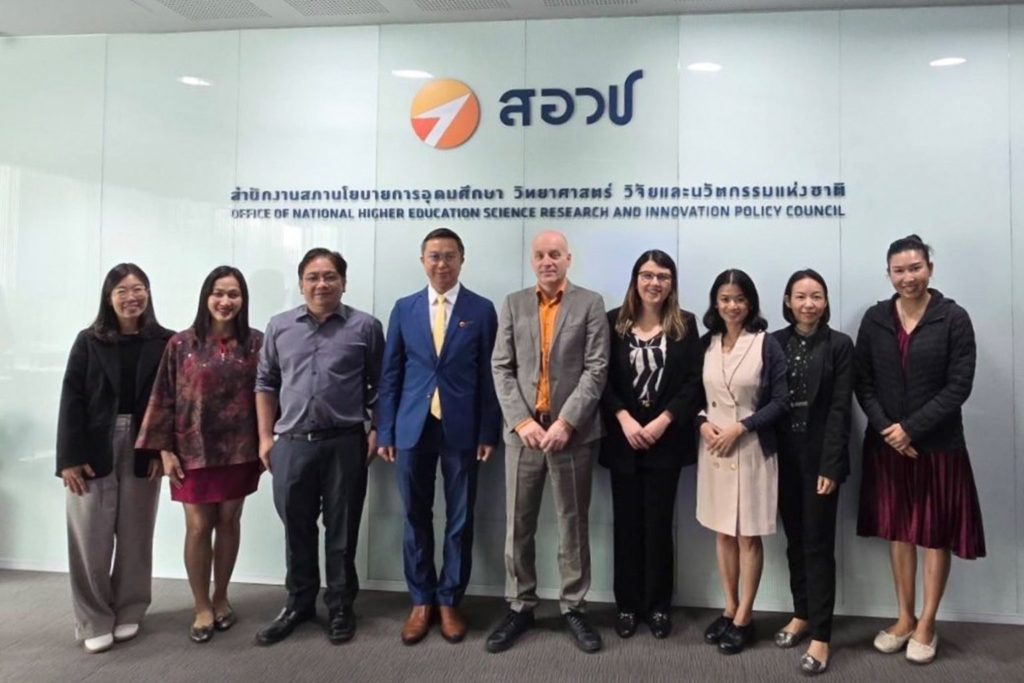
Additionally, NXPO aims to enhance the role of the APEC Center for Technology Foresight (APEC CTF) as a key platform for both national and international policy foresight. Plans are in place to build partnerships with leading organizations such as the OECD, ASEAN, and the United Nations, establish the Thailand Foresight Alliance, host an annual foresight conference, launch national awards for outstanding policy developers, and set up the NXPO Consultancy Unit to serve as a center for policy advisory services.
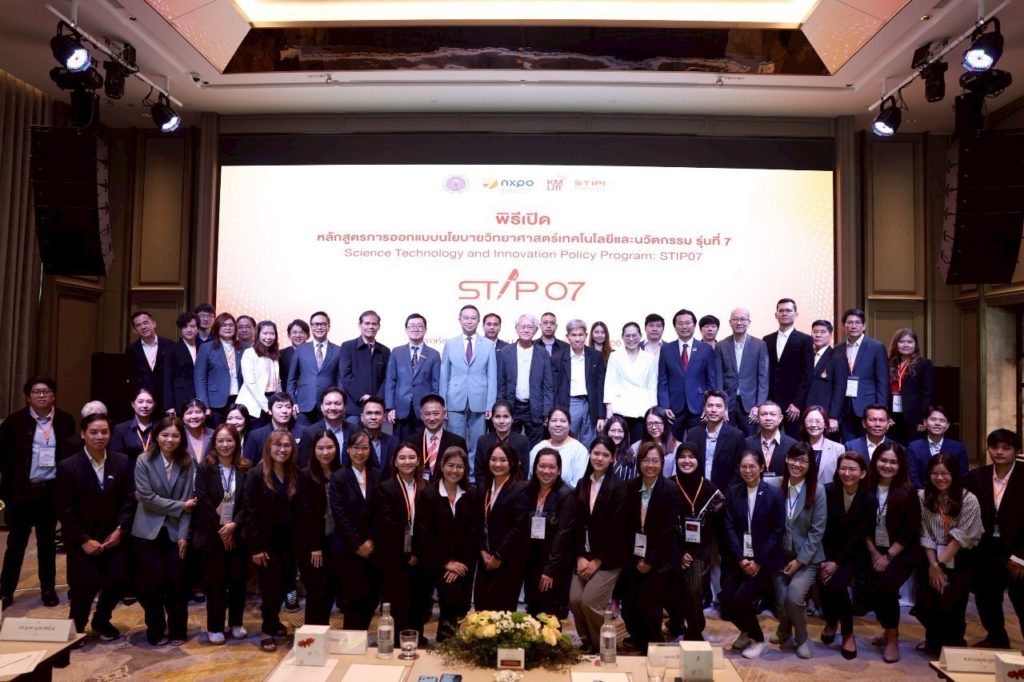
Dr. Surachai concluded by reaffirming NXPO’s commitment to three core operational pillars: 1) Driving Thailand’s economy beyond the middle-income trap, 2) Accelerating digital transformation to enhance national competitiveness, and 3) Leading the carbon neutrality transition toward a sustainable, low-carbon society.






